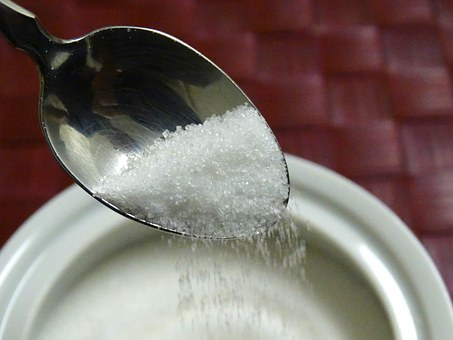Flavor Enhancer Monosodium Glutamate Is Linked to Obesity
© HealthyMuslim. See Terms and Conditions

Another piece of research has surfaced recently, in which the relationship between MSG intakes and body mass index (BMI) was assessed in more than 10,000 Chinese adults over an average of 5 1/2 years.
The results showed that higher MSG levels were associated with a higher BMI and therefore a greater risk of being overweight. Again, the association remained even after factors such as food intake and activity levels were taken into consideration.
The authors of the study discussed the potential mechanisms behind their findings and in particular, on the impact glutamate can have on a part of the brain known as the hypothalamus. Although small in size, the hypothalamus has a regulatory role in key processes including metabolism and hunger. Through its impact on the hypothalamus, the hormone leptin suppresses appetite and stimulates the metabolism. However, if it doesn't do its job properly ('leptin resistance'), this does not bode well for maintenance of a healthy body weight.
The authors of this paper point out that glutamate has the ability to damage the hypothalamus, and has the ability to cause leptin resistance. This mechanism alone, and its potential impact on metabolism, could explain how MSG might predispose to obesity, even when food intake and activity levels are taken into account.
To avoid monosodium glutamate, ensure that the majority of your diet is made up from natural, unprocessed foods. Avoid soy sauce and other condiments which are likely to contain this flavor enhancer and check the ingredient labels when buying food. Monosodium glutamate is sometimes listed under names such as yeast extract, autolyzed yeast or hydrolyzed protein.
Research Paper Details:
He K, et al. Consumption of monosodium glutamate in relation to incidence of overweight in Chinese adults: China health and nutrition Survey (CHNS). Am J Clin Nutr 2011;93(6):1328-36.
Link to this article: Show: HTML Link • Full Link • Short Link
Share or Bookmark this page: You will need to have an account with the selected service in order to post links or bookmark this page.





|
Related Articles:
- Junk Food Diet Increases Allergies in Children
- Why the Sweetener Aspartame Is a Deadly Toxin
- Obesity and Diabetes Caused By Food Sweetener Fructose
- Probiotics: The Key to Better Health
- Phytochemicals In Plant-based Foods Help Battle Obesity and Disease
- The Dangers of Sugar
- Freshly Squeezed Juice Lowers the Risk of Obesity
- Being Overweight Raises the Risk of Cancer
- Almonds Can Control Weight
- MSG (Monosodium Glutamate): The Flavor Enhancing Excitotoxin Linked to Obesity, Brain Damage and other Diseases
You must be registered and logged in to comment.
Most Popular
Latest Articles
Popular Subjects
Health, fitness and longevity
Based upon the principles of health
in the Qur'an and Prophetic Traditions.
HealthyMuslim.Com
There are two bounties in which
most people lose out: good health
and free time. Al-Bukhari.























